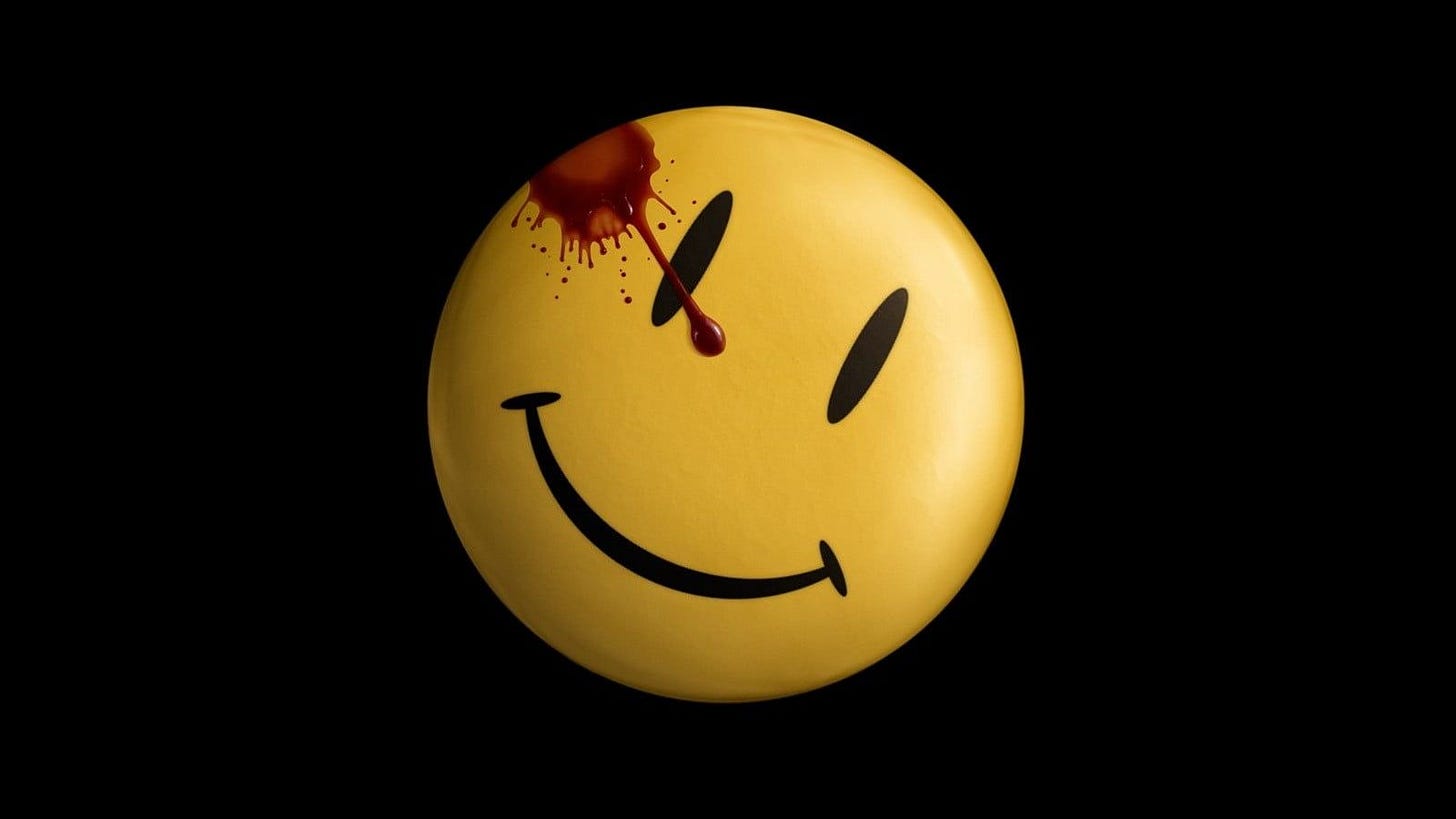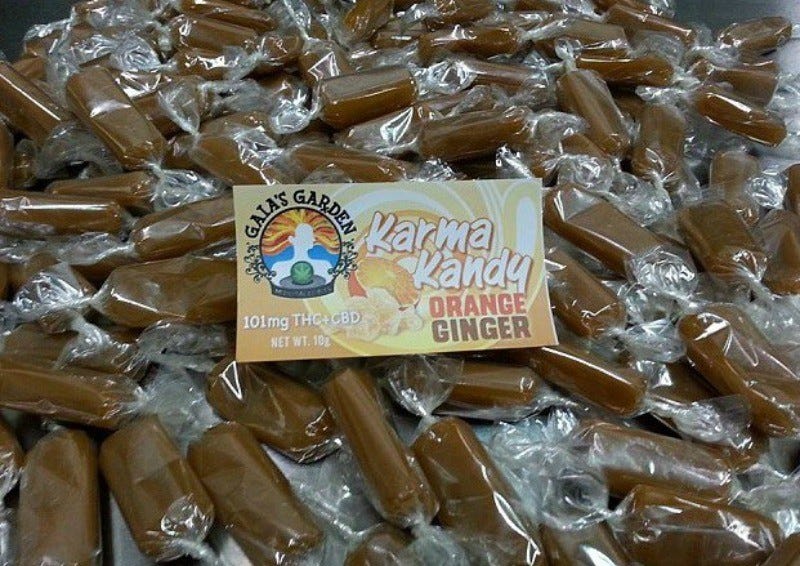The Psychedelic Defence
If people commit crimes while on psychedelics, should they be able to claim diminished responsibility?
As regular readers will know, at the end of last year our research had an impact on the trial of off-duty pilot Joseph Emerson, who was facing 84 counts of attempted murder when he tried to crash a plane, 48 hours after taking magic mushrooms. Emerson told police he was in a dream and trying to wake up.
When his case made the news, many figures in the psychedelic industry said the incident couldn’t possibly be connected to magic mushrooms, as it occurred 48 hours after he’d taken them. That prompted me to get in touch with his defence team to tell them that in our research we’ve come across many similar episodes of derealization following the use of psychedelics, including intense episodes where people feel they’re in a dream and don’t know how to wake up.
Our research helped persuade the jury in that case to drop the attempted murder charges against Joseph Emerson. The jury was persuaded he was a normal family man who made a mistake and tried psychedelics for the first time, with no idea of the potential adverse effects. It no doubt helped Joseph’s case that, in that incident, no one actually died.
My question today is this: how likely is this ‘psychedelic defence’ to hold up in future trials? We see incidents of people killing other people while they’re on psychedelic drugs (including cannabis) pretty much every month. So what do you think – should the ‘psychedelic defence’ hold in court?
Let’s consider some examples. In June last year, in the same week that thousands gathered at the MAPS conference Psychedelic Science, an off-duty US Marine went to an electronic music festival in Washington called Beyond Wonderland. There he took magic mushrooms, and started to believe the world was coming to an end. He went to his camper-van, got his gun, and started firing into the crowd, killing engaged couple Brandy Escamilla and Josilyn Ruiz. He is being tried for murder in an ongoing trial, and has pleaded not guilty. If convicted he could face life in prison.
A week ago, another US military veteran was arrested after he took magic mushrooms, believed he was in the garden of Eden confronting Satan, and went on a shooting spree in San Francisco, in which thankfully no one was injured. The veteran had PTSD after having served in Afghanistan, and it’s not clear if he took magic mushrooms to try and self-medicate. His trial has not yet begun but I would not be surprised if his attorney, Rebecca Young, makes the ‘psychedelic defence’ that the veteran was a family man with a record of public service who just had a very bad trip.
In November 2023, in London, Canada, 22-year-old Nathanial Veltman was found guilty of murdering four members of a Muslim family when he drove his van into them. Veltman spent a lot of time on far-right racist websites, but claimed he had murdered the family when in a state of derealization induced by magic mushrooms, a point his defence team tried to maximize. The case attracted a lot of attention as an incident of far-right terrorism, and ultimately the ‘psychedelic defence’ was not persuasive to the jury. Veltman faces at least 25 years in prison.
In another incident in Canada a year earlier, however, murder charges were dropped against 25-year-old Thomas Chan, after he took magic mushrooms and then stabbed and killed his father. According to Yahoo News:
During Chan’s trial, he was not allowed to use the automatism defense as Section 33.1 of the Criminal Code in Canada does not permit individuals charged with a violent assault to use impairment as a defense. However, the Supreme Court found Section 33.1 of the Criminal Code unconstitutional this Spring, granting Chan a new trial. Crown attorney Paul Murray told reporters: “He has completely turned his life around. At 25 years of age, he is now on the dean’s honor roll at university,” Murray reportedly said. Chan’s defense lawyer Danielle Robitaille thanked prosecutors: “Thomas Chan is not a criminal,” she told the court. “He was a kid who made a mistake for which he could never have foreseen the consequences.”
Others have been less fortunate. In May 2023, New Jersey teenager Brennan Doyle broke into the house of neighbour Donna Ongsiako and stabbed her in the neck. He used the psychedelic defence – he was under the influence of magic mushrooms – but the jury was not convinced and found him guilty of attempted murder. Then there’s MMA fighter Jarrod Wyatt, who in 2010 took magic mushrooms with a friend, descended into paranoia, and ripped out his friend’s heart. He accepted the murder charges and is serving 50 years in California.
There are also various cases of LSD-related murder – like Zamar Kirven, a talented college football player who was convicted for murder last year and is now spending life behind bars after he dropped acid and murdered two friends. There’s Gabriel Goh, who killed his mother and grandmother after taking LSD in Singapore – the court acquitted him of murder but had him sectioned for mental instability.
And then there are many instances of cannabis-related homicide. Last month, the case of 32-year-old Bryn Spejcher made international news, after the California woman was sentenced to probation and community service when she fatally stabbed her boyfriend over 100 times. Her defence team said she was suffering from cannabis-related psychosis, and the jury was convinced this was an out-of-character incident.
“Spejcher had an adverse reaction to the marijuana and suffered from what experts call cannabis-induced psychotic disorder,” according to a press release from the Ventura County district attorney from December.
The family of her boyfriend protested the decision, arguing the state had just handed a ‘license to kill’ to anyone who uses the marijuana defence. And there could be a lot of them. A 1994 study in the International Journal of Addiction interviewed 268 people imprisoned for homicide in a New York correctional facility, and found that a third of them had smoked marijuana in the 24 hours before they committed homicide and 7% of them believed their acts were connected to the marijuana.
Now I know that most of my readers are psychedelic enthusiasts and are no doubt having an acute fit of Whataboutism right about now. You are right, alcohol has a horrendous criminal record, so bad there’s a whole Wikipedia page about it. There are a million arrests for driving while drunk in the US every year, and around 11,000 deaths a year. Alcohol has been cited as a factor by two thirds of domestic violence victims. One study found that 54% of the perpetrators of violent crime consumed alcohol before committing the crime. The CDC found that excessive drinking costs the US around $250 billion a year in health and crime costs.
But it’s interesting – you hardly ever hear ‘the alcohol defence’, ie ‘it’s not my fault, your honour, I had no idea drinking a bottle of vodka could impair my driving’. That’s because alcohol is a well-established, legal, socially-integrated drug and so people are expected to know about the risks.
That’s not yet the case with psychedelics, but it very soon could be.
Forensic psychiatrist Brian Holoyda (who gave a fascinating talk on the risk of psychedelic malpractice cases at our last Psychedelic Safety Seminar) has advised on psychedelic-related murder cases and published one of the only academic papers on the topic. I asked him what he thought of the ‘psychedelic defence’. He told me:
there's a legal concept known as ‘diminished capacity’ that refers to situations in which individuals are not able to form the requisite level of criminal intent for whatever the crime that is charged. States differ in terms of whether they allow evidence of voluntary intoxication into court. Most states, as far as I know, do not allow evidence of voluntary intoxication. If somebody takes a substance that they know to be mind-altering, and then they do something when they're altered on that drug, even though they don't know what they're doing at the time, they still took the substance that later led to the harm. So that's why, for example, if you’re drunk and run someone over in your car and kill them, you can't show you had diminished capacity. You chose to drive drunk, even if you were disinhibited and experiencing impaired judgement at the time. If somebody is seeking out psychedelics, and then engages in violent or criminal behaviour while intoxicated with them, they should be responsible for that behaviour. As I see, it's the same thing as alcohol. They can’t make the argument they didn’t realize psychedelics would alter their mind – but that’s the entire reason they seek them out.
Once cannabis and psychedelics are legalized (if that ever happens), could there be cases of psychedelic-related murders where the accused blames the place they bought the drugs for the crimes they commit? Yes, that’s likely and has indeed happened in Colorado.
Back in 2016, Denver resident Richard Kirk ate a cannabis edible and then shot his wife. He was arrested and charged with murder. In the trial, his defence team brought many experts to argue he had no idea that cannabis could provoke a violent psychotic episode, and it was the fault of the dispensary and edibles company for not properly informing him of the risks. Kirk ultimately took a plea deal and is in prison for murder. The Kirk family brought a civil case against the dispensary (Nutritional Elements) and the company that made the edibles (Gaia’s Garden) for failure to warn about the risk of adverse effects. I can’t find information about the outcome but believe it was settled out of court. Gaia’s Garden insurer refused to cover its legal costs. There are likely to be similar cases in the future.
In 2022, California bill 1097 tried to make health warnings legally mandatory on all cannabis products, however the cannabis industry successfully blocked that legislation.
With psychedelics and guided psychedelic sessions, Brian Holoyda thinks there is a risk of ‘a slew of lawsuits’ if people harm themselves or others after going to a clinic in Oregon, Colorado or other states where psychedelics become legally available. He tells me:
In Oregon, you’re asking people who have no medical or mental health training and who have completed a 100 hour psilocybin course online, to provide full informed consent to people coming in off the streets about the risks of psychedelics, it seems pretty inappropriate to me. And one of my concerns is the risk for public safety and safety of the clients who take the substances and the staff at these facilities that are supposed to be watching folks, but they have no legal right to detain people or sedate people if they become agitated. It just seems sort of like a recipe for disaster.
To be clear, psychedelic-related crimes are thankfully rare, and one new study found no evidence for increased psychedelic-related crime (or psychedelic-related hospitalizations) in Colorado in the year since psychedelics were decriminalized there.
But the occasional incident will still occur. And it seems likely to me that, as we all become more familiar with the risks of psychedelic, the ‘psychedelic defence’ will become less and less persuasive for juries.
After the pay-wall, a leading figure in the psychedelic renaissance, Dr Ben Sessa, is called to a medical tribunal for allegedly having an inappropriate relationship with a vulnerable former ketamine patient. Plus two new scales try to predict and minimize the chances of challenging psychedelic experiences.




